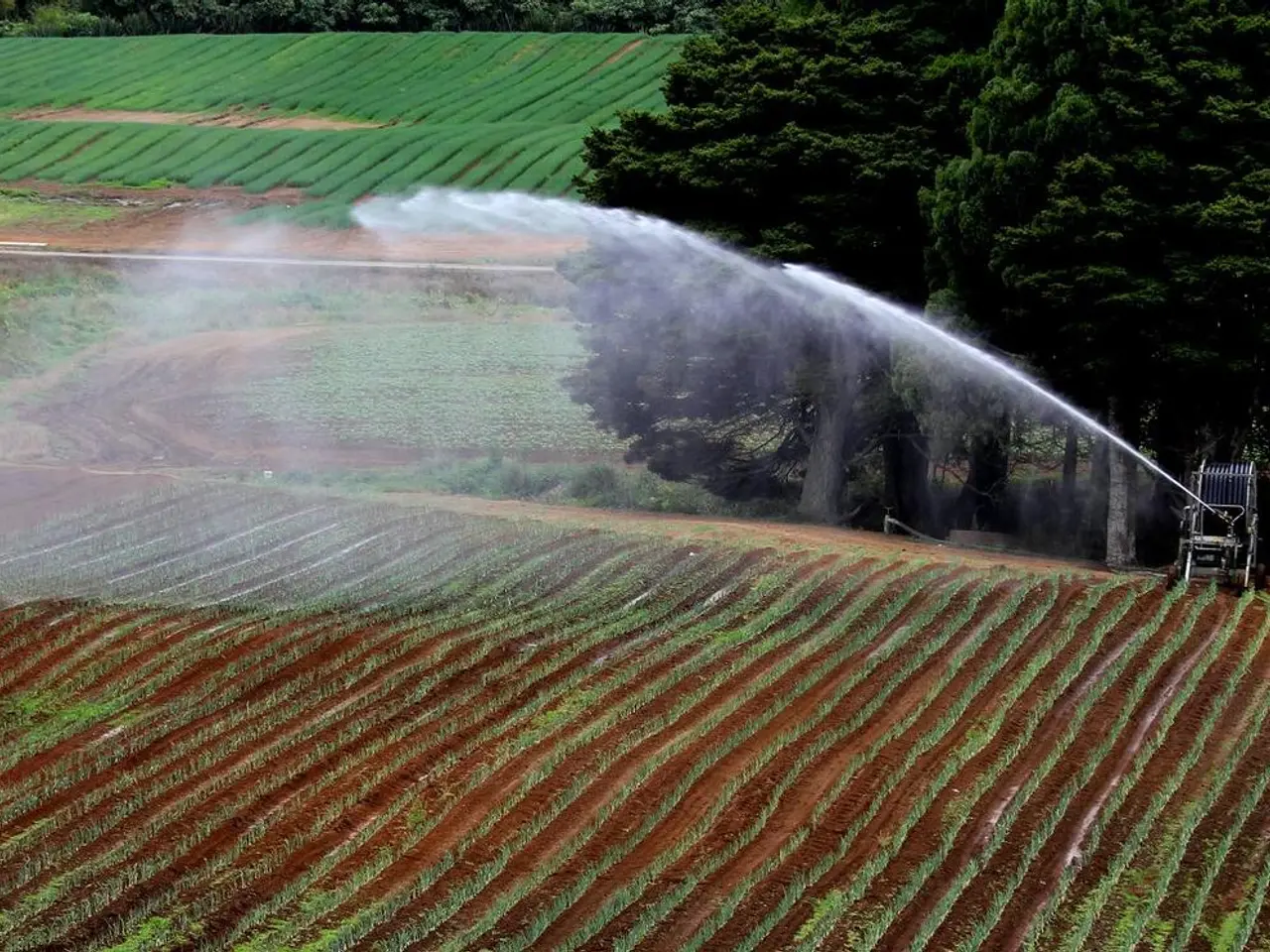Transforming Land into Riches: Uttar Pradesh Farmer Converts Sugarcane Farming into a Profitable and Sustainable Rs 1 Crore Business
In the heart of Uttar Pradesh's Shahjahanpur district, Sartaj Khan, owner of Shahid Farms, has transformed sugarcane cultivation into a thriving business. With an annual turnover of over Rs 1 crore, Sartaj's 50-acre farm stands as a testament to the power of innovation and strategic planning in agriculture.
Sartaj's success story is built on a foundation of high-yield and disease-resistant sugarcane varieties. He has experimented with different varieties over the years, including 0238, 13235, 0118, 14201, and 16202, which have shown remarkable disease resistance and productivity on his farm.
To ensure the best possible results, Sartaj collaborates with agricultural scientists and institutes to stay informed about the latest developments in sugarcane breeding. This collaboration allows him to adopt advanced techniques such as precise irrigation, balanced fertilization, and integrated pest management.
Sartaj's farm operates on a sustainable model, combining organic and conventional practices. He avoids the use of herbicides, relying on natural and manual methods for weed control. His approach to fertilization combines organic and chemical farming, using farmyard manure, vermicompost, and balanced chemical inputs.
The trench method is another advanced technique Sartaj uses for planting sugarcane. This method ensures nearly 100% germination, and he maintains row spacing of 2.5 to 4 feet for easier weeding and the use of mechanized tools.
Sartaj's strategic approach extends to farm management and market linkages. He times his sowing and harvesting carefully to optimize productivity, taking weather patterns and soil conditions into account. By selling sugarcane saplings from his nursery to local farmers, Sartaj provides them with a source of support and inspiration. He also earns extra revenue from selling organic compost and consultancy services to neighboring farmers.
Sartaj's farm, Shahid Farms, is known for its adoption of advanced techniques and intercropping systems, making it a local hub for knowledge-sharing among nearby farmers. During the summer season, he applies similar intercropping methods, improving soil health, reducing pest infestations, and making more efficient use of available water resources.
Sartaj's journey reflects how dedication, innovation, and the strategic adoption of modern farming techniques can turn agriculture into a thriving business. His passion and knowledge of sugarcane cultivation were inherited from his father and carried forward with a progressive mindset, blending traditional wisdom with modern agricultural practices.
This is a general overview of Sartaj Khan's remarkable success in sugarcane farming. For more detailed information, one may need to consult local agricultural reports, news articles on success stories from Shahjahanpur, or government agricultural extension resources directly related to Sartaj Khan.
- Sartaj Khan's entrepreneurial acumen in the agricultural sector has allowed him to generate an annual turnover of over Rs 1 crore, showcasing the potential for business growth in farming through innovation and strategic planning.
- As an entrepreneur in the field of finance and business, Sartaj Khan's success story illustrates the transformative power of advanced farming techniques, collaboration with agricultural scientists, and sustainable practices in shaping the future of agribusiness.




